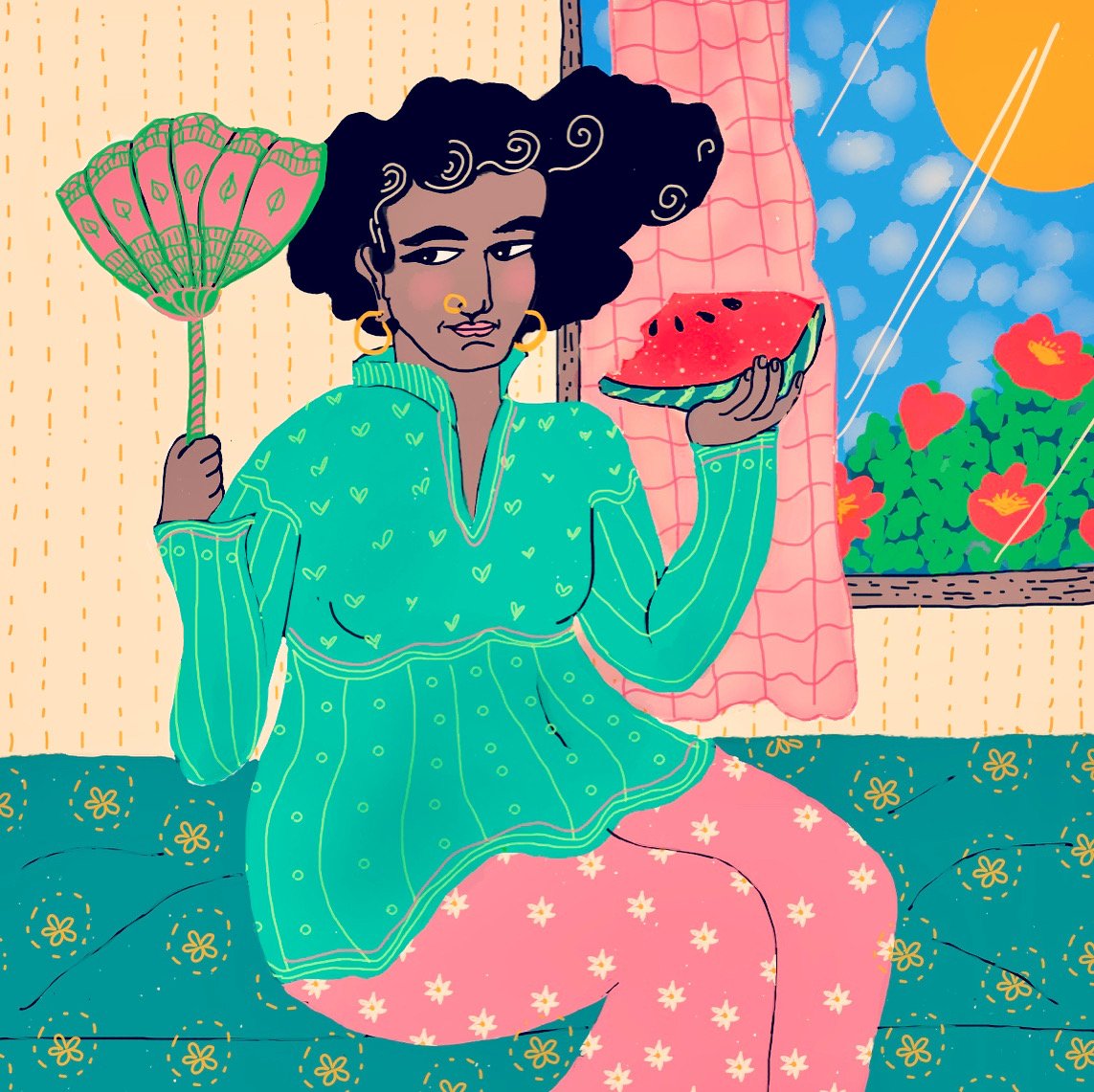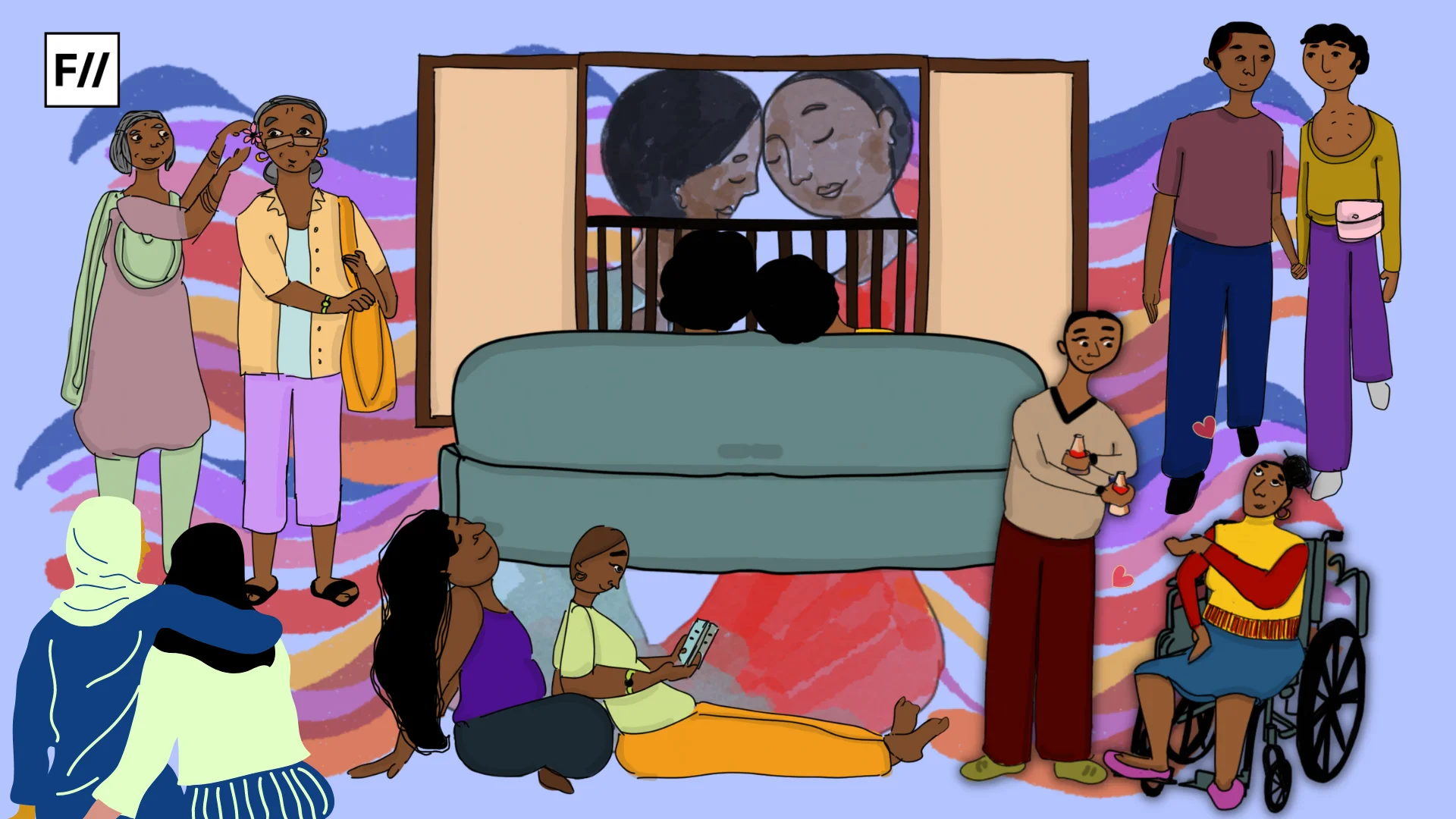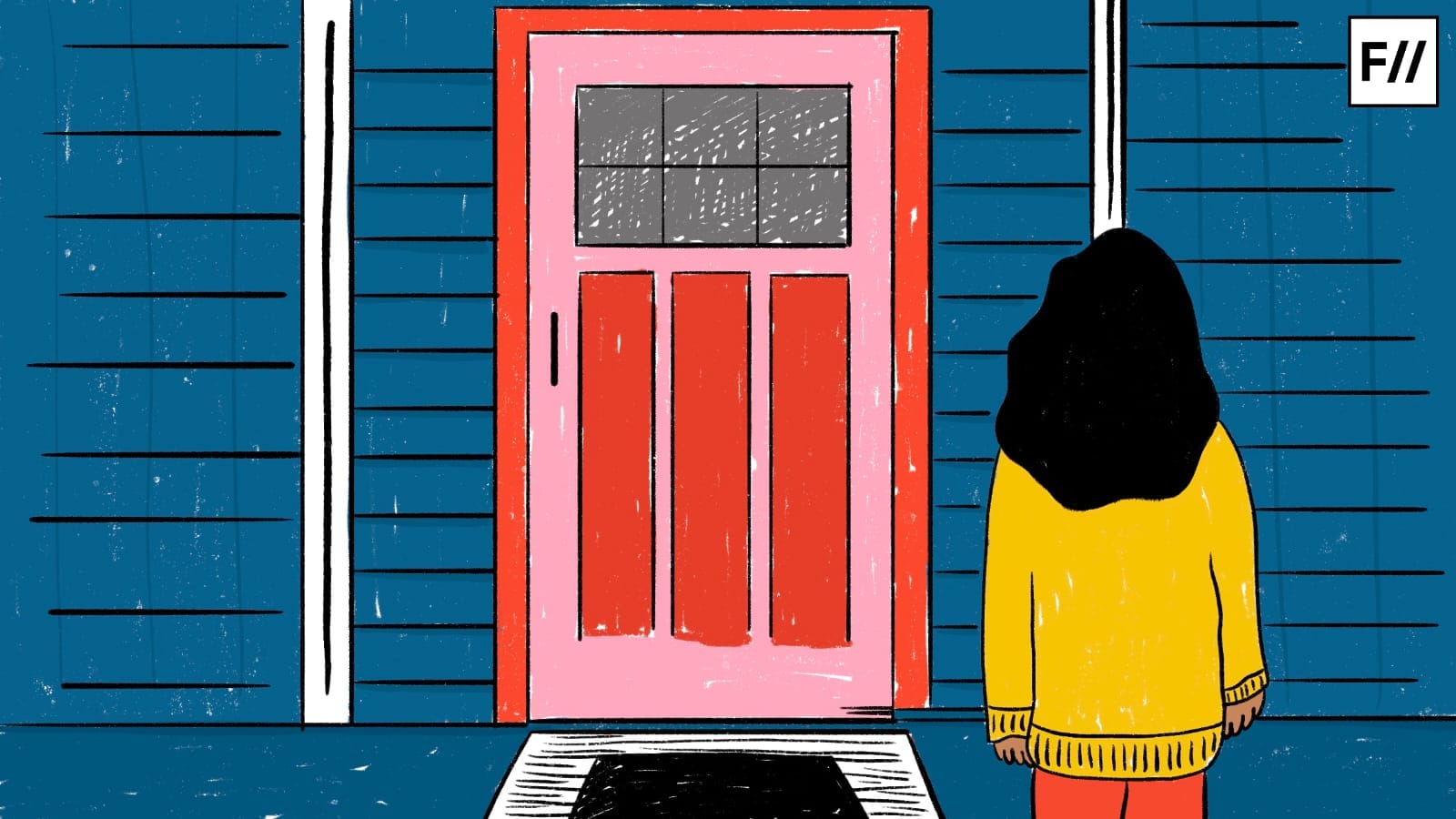Editor’s Note: Criplentine’s Day is a project by Revival Disability Magazine rooted in the belief that all kinds of love should be celebrated because love is a revolution. An accessible Valentine’s Day should be one that not only includes an able-bodied kind of love between two heteronormative lovers. As a part of the project, Revival Disability Magazine collaborates with Feminism In India to publish a series of articles on the theme. It will include a fairytale love story between a girl and her mobility aid, two queer, disabled lovers eating rainbow-coloured ice-cream and kissing each other with rainbow-coloured mouths, the love between two best friends who’ve created their own queer, disabled utopia by finding solace and belonging in each other in a new city, and more.
Posted by Shivangi Anil
I have fond memories of shopping at the mall with my mother. I had just finished tenth grade and the results were out, and we went shopping as a treat. I love wearing dresses – they are easier to try, put on. So my mom went and picked up a few. While she was walking back to the trial room, a middle-aged woman at the store said “Why are you buying these for her? What is the point?” My mother ignored her and went on with her shopping. But what I heard stayed with me.
Here’s what was happening: Given my disability, I wasn’t expected to want to dress up or look good. I didn’t fit the notion of a normal woman anyway. I was always going to be an infant in her mind. Buying a dress for me was seen as a waste of both money and time by the woman at the store.

Also read: Learning To Un-Hide My Disability In Romantic Relationships
Instances of infantalisation became more frequent with time. I remember a particularly hurtful incident at the salon once. I was getting my curly (read dry and frizzy) hair washed. People at the salon had some unsolicited advice: “Why don’t you get rebounding done, your hair is a mess it must be so hard for your mother to manage them.”
As a 15-year-old, I thought it was a one-time incident. But sadly, I was wrong. Instances of infantalisation became more frequent with time. I remember a particularly hurtful incident at the salon once. I was getting my curly (read dry and frizzy) hair washed. People at the salon had some unsolicited advice: “Why don’t you get rebounding done, your hair is a mess it must be so hard for your mother to manage them.” It took me a minute to understand how my mom came into the picture. They had assumed that I could not manage my own hair and my mother had to do everything for me, including taking care of my hair and hygiene just because I used crutches to walk. I had been infantilised once again and clearly I wasn’t supposed to want to do anything to try and look pretty: it wasn’t expected of me, I am still not sure if anything is.
As a child I assumed that this kind of behaviour might be a function of demographics such as age and education but my interactions with the most ‘educated’ of people have been equally unpleasant. I often go for a walk with my parents to the nearby park. More often than not, questions about my age, work, hobbies and hair as well are directed towards my parents, I think people assume that I might not understand or respond. (Believe you me, we speak and understand the same languages(s). Persons with disabilities don’t have a language of our own. As much as I wish to be conspiring against the standards of normalcy and changing all the stairs to ramps, it isn’t happening.)
I guess people tend to engage in the classic ‘Spread’ phenomenon while interacting with us. That is, many times they tend to spread physical or invisible disabilities to our minds and assume a lack of intellectual capacity. Our parents and guardians do not have all the answers – for instance my parents described me as a clinical psychologist for the longest time even though I do not have an MPhil and cannot practice as a clinical psychologist. My parents are still unsure of the difference between a diplegic and a quadriplegic case of cerebral palsy (Partly because I would rather discuss the next Bollywood flick with them over the nuances of my impairment and partly because my education gave me more information than my parents had the access to). Trust us when we say we know more about our needs, accommodations and educational qualifications.
Also read: Challenging Capitalist, Able-Bodied Notions Of Love From The Intersection Of Love & Disability
When I started working, people who had known me for years were aghast at the idea of me being employed, earning and actually spending 8-10 hours working, away from my parents. Many took the liberty to assume that my mother accompanied me to work. Forget being offered a drink or a smoke at a party, just being present at an event is a shock to many.
Another common experience is the plethora of questions that come with the idea of me being alone, be it in college, office or even at my own house. When I started working, people who had known me for years were aghast at the idea of me being employed, earning and actually spending 8-10 hours working, away from my parents. Many took the liberty to assume that my mother accompanied me to work. Forget being offered a drink or a smoke at a party, just being present at an event is a shock to many. I remember I was enjoying a movie with my friends and happened to meet another bunch of friends there. One of them asked, “What are you doing here?” I really didn’t know to respond to that, I still don’t. I mean what are people expected to do at a mall, and why are those expectations not applicable to persons with disabilities like me? Sometimes, I wonder if this able-bodied world would even allow us to adult at all. Well, we will end up adulting and walking in our own ways. at our own pace. Like I do now by talking over my parents when people talk to my parents about me, not just managing my curly hair but also blogging and helping other people manage them better and obviously buying more dresses and drinks than ever before.
Shivangi is a writer and blogger questioning able-bodied norms one write up/ post at a time. In her free time you will find her enjoying tea with her favourite song or critiquing an upcoming movie at the cinemas. She can be found on Instagram.
Featured image source: Alia Sinha
About the author(s)
Revival Disability Magazine is a digital media project on Disability, Sexuality and Intersectional Ableism for disabled and queer folks, by disabled and queer folks. Revival is a revolution of the disabled self to re-claim and re-define stories of disability in India, through first person narratives of lived experiences and creating an accessible queer utopia echoing the vision of for inclusion and accessibility.





Her apt description of the responses which people give abt her have relly touched me.How brave of her to pen her feelings down & face them bravely. I feel sorry for those people who can’t let people live in peace.Hats off to Shivangi
Very well written Shivangi. Needed a lot courage to do so. Best Wishes.